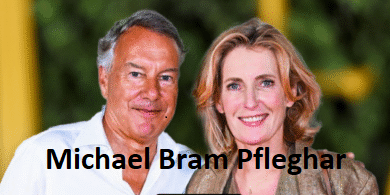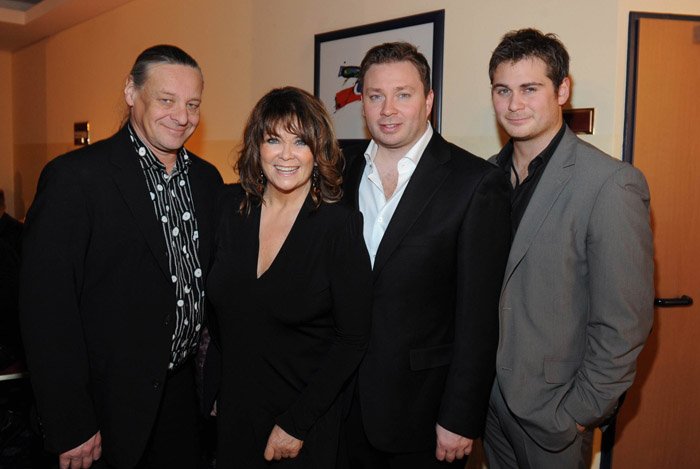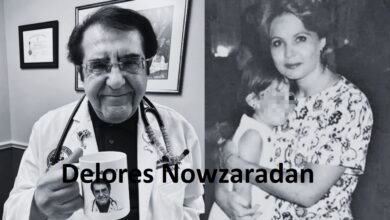Michael Bram Pfleghar The Visionary Behind German Television and Cinema Innovation

Introduction: The Man Who Redefined German Entertainment
Michael Bram Pfleghar may not be a household name outside of Europe, but within the realm of German film and television, his influence is impossible to overlook. Born in the mid-20th century, Pfleghar was part of a generation that reshaped how people viewed entertainment. He combined artistic innovation with a sense of humor and modernity that resonated with audiences across Germany and beyond.
In an era when television was still finding its rhythm, Pfleghar brought cinematic quality and storytelling depth to the small screen. His work wasn’t just about entertainment—it reflected the evolving social dynamics of post-war Germany, from optimism and economic recovery to a newfound sense of cultural identity.
Over the years, Pfleghar became recognized as a director, writer, and producer who could seamlessly balance style with substance. His projects stood out for their intelligence, creativity, and emotional connection with viewers. He was more than a filmmaker—he was a storyteller who understood both people and the power of the medium itself.
Early Life and Career Beginnings

Michael Bram Pfleghar was born on March 20, 1929, in Stuttgart, Germany—a city known for its culture and industrial innovation. Growing up in post-war Germany wasn’t easy, but for Pfleghar, the hardships became motivation. From an early age, he developed a passion for storytelling, film, and art, all of which would later merge into his life’s work.
After finishing his studies, Pfleghar began working in the entertainment industry during a transformative time. German media was rebuilding itself after the devastation of World War II, and there was room for creativity and experimentation. The film and television landscape was changing rapidly, and Pfleghar saw an opportunity to shape its direction.
He started his career working on small productions, gaining experience in both film and broadcasting. His creative approach and technical expertise quickly drew attention. Michael Bram Pfleghar Unlike many of his contemporaries who focused on formulaic entertainment, Pfleghar believed in blending visual storytelling with thematic depth. He wasn’t afraid to take risks or to explore new formats, something that would define his later work.
Breakthrough in Television: A Pioneer of Modern Programming
Michael Bram Pfleghar rise to prominence came through his groundbreaking contributions to German television. He wasn’t content with just creating shows—he wanted to revolutionize how television connected with viewers. His programs often combined humor, music, and societal commentary, which set them apart from typical productions of that time.
One of his most well-known creations was “Wünsch Dir was” (Make a Wish), a variety show that became a massive hit in the 1960s and early 1970s. It wasn’t just a show—it was an experience. Viewers could actively participate, which made it interactive long before social media or audience voting became the norm. The show’s charm, witty tone, and innovative presentation made Pfleghar a household name in Germany.
His work was marked by a perfect balance of entertainment and sophistication. Michael Bram Pfleghar had an exceptional eye for detail—he knew how to make television feel cinematic, how to create emotional connections, and how to make audiences laugh, think, and dream all in one sitting. His ability to combine creativity with technical mastery helped set new standards in German broadcasting.
Venturing into Cinema: Blending Art with Entertainment
Although television was his playground, Michael Bram Pfleghar ambition extended to cinema as well. In the 1960s and 1970s, he directed and wrote several films that showcased his versatility and sharp understanding of the audience. His works often merged satire, romance, and musical elements—genres that were particularly appealing to post-war audiences seeking light-hearted yet meaningful entertainment.
One of his notable films was “Weißt du eigentlich, wie lieb ich dich hab?” (Do You Actually Know How Much I Love You?), which reflected his tender approach to human emotions and relationships. Another well-known work, “Willkommen im Club”, revealed his satirical edge, focusing on social norms and aspirations in a rapidly changing Germany.
What made Michael Bram Pfleghar cinema special was his approach to visual storytelling. He brought a sense of television dynamism to film—quick cuts, engaging dialogues, and a fluid narrative style. He blurred the boundaries between cinema and TV, proving that the two mediums could coexist and even enhance each other.
Collaboration with Stars and Creative Vision
Michael Michael Bram Pfleghar success was not just about his individual talent but also his ability to collaborate with some of the biggest names in the entertainment industry. He worked with prominent German and international celebrities, earning their respect for his professionalism and creative vision.
One of his most talked-about collaborations was with actress and singer Dagmar Berghoff, as well as the talented Heidi Kabel, both of whom brought his television projects to life with their charm and authenticity. Pfleghar had a remarkable gift for identifying talent and helping performers deliver their best.
Beyond television and film, Pfleghar was also known for his understanding of popular culture. He knew what audiences wanted—something relatable yet fresh. His sets, costumes, and visual choices often reflected the spirit of the times, making his shows timeless in their appeal. Even today, many of his works are remembered as iconic examples of classic German television.
Personal Life and Legacy
Behind the scenes, Michael Bram Pfleghar life was as fascinating as his career. He married Italian actress and singer Alexandra Bastedo, though their relationship eventually ended. His personal life had its challenges, but his passion for creativity never faded. Like many great artists, Pfleghar’s intensity and perfectionism often reflected in both his professional triumphs and personal struggles.
Tragically, Pfleghar’s life came to an untimely end in 1991. His passing was a shock to the German entertainment community, leaving behind a legacy that remains influential even decades later. He was more than just a director—he was a cultural innovator who reshaped how Germans perceived entertainment.
Today, his name stands as a reminder of what true creativity can achieve. Michael Bram Pfleghar shows and films continue to inspire filmmakers, directors, and producers who aim to blend innovation with emotion. His pioneering spirit helped build the foundation for modern German media, bridging the gap between art and mass communication.
Influence on Modern Media and Lasting Impact
Even years after his death, Michael Bram Pfleghar fingerprints can still be seen across German television. The format of interactive shows, the blending of humor with commentary, and the cinematic quality of TV storytelling—all owe something to his vision. His approach helped transform television from a passive experience into an engaging, emotional, and thought-provoking medium.
Modern directors often cite Pfleghar as a source of inspiration for his ability to merge traditional storytelling with modern production techniques. His sense of humor, combined with cultural awareness, made his work relatable to audiences across generations.
In academic and cultural discussions, Michael Bram Pfleghar influence is frequently mentioned when analyzing the evolution of post-war German entertainment. He proved that television and cinema could coexist not as rivals but as partners in shaping public imagination. His innovative techniques paved the way for today’s hybrid formats, such as reality entertainment, music-based shows, and creative variety programming.
Conclusion: The Legacy of a Creative Genius
Michael Bram Pfleghar life and work remind us that true creativity transcends time. His contributions to television and cinema changed the way people experienced entertainment in Germany. He was not just a director or producer—he was a visionary who redefined storytelling through innovation, empathy, and intelligence.
From “Wünsch Dir was” to his cinematic experiments, Pfleghar demonstrated that entertainment could be both fun and meaningful. His dedication to quality, his bold ideas, and his commitment to audiences make him one of the most important figures in German media history.
Even today, decades after his passing, Michael Bram Pfleghar’s influence endures. Every time a show captures the audience’s heart through clever writing, visual creativity, and emotional depth, it carries a spark of Pfleghar’s pioneering spirit. He may be gone, but his work continues to inspire—and that is the true mark of an artist who changed the world of storytelling forever.



